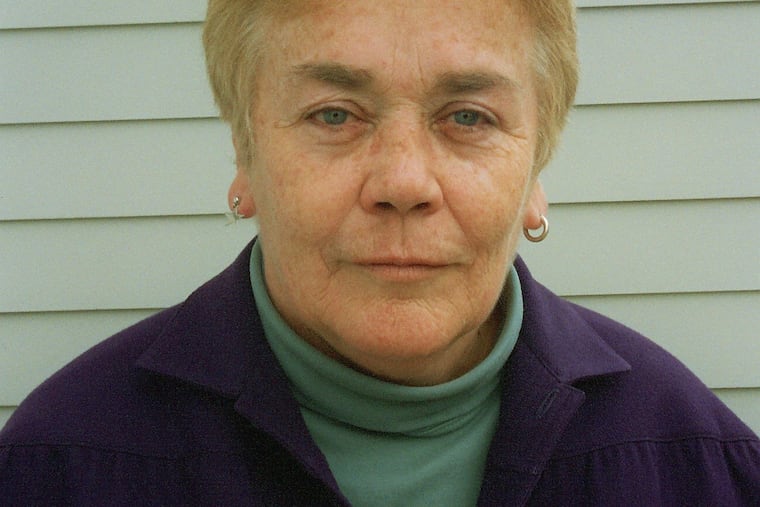Susan A. Wheelan, 72, psychologist and professor who studied the dynamics of work teams
Dr. Wheelan made it her mission to diagram the dynamics of work teams. She then created a business to help the groups work better.

Susan A. Wheelan, 72, formerly of Philadelphia, a psychologist and professor who studied the dynamics of work teams and created an intellectual model to map their success, died Saturday, Oct. 26, at Beth Israel Deaconess Hospital in Plymouth, Mass.
Dr. Wheelan had battled Alzheimer’s disease for seven years, said her wife, Jane H. Winter. A former resident of Mount Airy, she moved in 2002 to Provincetown, Mass.
From 1975 to 2002, she was on the faculty at Temple University. She was appointed associate professor in 1979 and became a full professor in 1982. She directed Temple’s Center for the Study of Psychoeducational Processes.
“Dr. Susan Wheelan was extremely well-known in the Temple University and broader professional community, as well as internationally,” said her colleague and close friend Marion Frank. “She is one of those people who really made a difference in the world.”
Dr. Wheelan was best known for research on the dynamics of work teams. She created the Group Development Questionnaire (GDQ), identifying five phases of team development. The methodology has been used to increase productivity and collaboration here and abroad.
She lectured widely, wrote 60 research articles, and wrote or edited a half-dozen books. In her 1994 book, Group Processes: A Developmental Perspective, she spelled out her rationale.
“Creating healthy and effective groups capable of responding to new challenges is perhaps the most important task facing the human community of today,” Dr. Wheelan wrote. “Living in peace, in fact living at all, depends on our ability to live and work together effectively.”
She cited Senate subcommittees, research teams, sports teams, church groups, work teams, and larger social systems as examples of groups affected by the dynamics.
Dr. Wheelan said a group typically moves through five phases. First, it’s dependent on the leader for direction. Second, its members challenge the leader and quarrel among themselves. Third, the group rededicates itself to some goals. Fourth, the group implements changes to reach the goals. Fifth, the group disbands.
“If conflicts can be solved in phase two, it will give the individuals a feeling of camaraderie and hopefulness,” she told a psychology magazine interviewer in 2006.
She consulted and engaged in research projects with hospitals, school districts, prisons, corporations, and nonprofits throughout the United States and Europe.
Starting in the 2000s, Dr. Wheelan worked as a consultant and president of GDQ Associates Inc., the business she founded to aid struggling groups and to train and certify professionals in the GDQ methods.
In 2005, she went to Sweden to work for a corporation of consultants, Sandahl Partners. The partners adopted Dr. Wheelan’s methods, began training consultants abroad, and took over the work when her health failed. At her death, there were 2,000 trained consultants worldwide, according to GDQ Associates.
Born in Providence, R.I., she was the daughter of Daniel and Janice Wheelan. She graduated from Bay View Academy in Riverside, R.I., and earned a bachelor’s degree from Stonehill College in Massachusetts and a master’s of science degree from Eastern Connecticut State College before completing a doctorate in psychology from the University of Wisconsin/Madison.
In 1992, she received Temple University’s Great Teacher Award. She lectured at Oxford University, and in Ireland, Israel, Sweden, and the United States.
She was popular with students. “Students were very drawn to her, and she approached them with respect and authenticity in her down-to-earth manner,” said Marion Frank. “Susan had strong opinions, was an intellectual, and was able to make complex ideas accessible. But much more than that, Susan was warm and funny and fun-loving.”
She enjoyed the ocean, telling stories, fishing, and playing tennis. She sang in choirs and was a dancer with a unique humorous, style.
Dr. Wheelan became domestic partners with Winter in Philadelphia. She and Winter married in Massachusetts when it became legal in 2004. She adopted a daughter, Renaya Furtick Wheelan.
Besides her wife and daughter, she is survived by three grandchildren, four siblings, and many nieces and nephews.
A celebration of life is being planned for next summer in Provincetown.
Donations may be made in her name to the Alzheimer’s Family Support Center of Cape Cod via www.alzheimerscapecod.org.